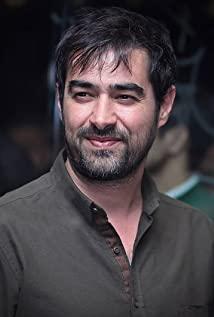In fact, it doesn't matter who took the money. The important thing is that Ryze did not steal the money, but it was because of this theft that a lawsuit was triggered. In the court, Nader repeatedly emphasized the fact that money was lost, and money became the cause and effect of the incident-money caused disasters.
In fact, the film discusses not only the estrangement and difficulty of communication between people of different social classes, but also the contradictions that are equally difficult to communicate within the two families. If Simin took the money, she didn't say it in the end, and there were also communication problems between her and Nader, the divorce between the two and the dignity that Iranian independent women value most; and the maid Reiz dared not tell the truth about the miscarriage , it can be guessed that the embarrassment of her family's heavy debts and the great psychological pressure of her considerate husband, which are problems between the same class.
It is quite interesting that the "Koran" appears twice in the film, and each time corresponds to a moral test. Reverence or not seems to be the division between the two classes facing religion, as opposed to comparing dignity and faith. Losing a child is more important to Ritz, and Nader sees the sense of awe as a means to be used rather than a restraint-whether in the face of the judge's questioning or his daughter's plea, he swears again and again but fails. Lie again and again. And Hardett, who was irritated by his inability to protect his own rights, shouted to the judge in the film: "I worked in a shoe repair shop for ten years and was fired by them, saying that I would sue. I fought a lawsuit for a year, In the end, they let me go back and stay. But this time I won't let it go. I'm just not as articulate as he is."
But the kindness and honesty of the common people are out of fear of belief, or pious. Absolute faith is often equated with absolute fear, which is also the result of uneducated, dialectically contradictory in itself. The logic and expression of intellectuals are clearer, the influence of religion gives way to their own vision and judgment, and people with low culture are more traditional, and they resort to religion to seek peace.
It is worth noting that a detail sandwiched between the two court confrontations seems to have no meaning at this time: Somaye, the little girl waiting outside the court, silently stared at the lips of Temei, who was reciting the text, mechanically repeating. Her words: "In the Sassanid dynasty, people were divided into two classes, the upper class and the common people." The grandmother on the side immediately corrected: "The common people." Although "the common people" and "the common people" are in Persian The difference between the two families is difficult to verify, but to say the least, this detail implies that the conflict between the two families activates precisely the differences and contradictions between classes.
Many critics and even the director himself have pointed out that the aging father is a metaphor for Iran of the past, while the daughter is a symbol of the future. What has been pushed to the front by the judge's perspective and open ending is nothing more than the real dilemma of the Iranian middle class: in the face of the dual tear of Western forces and internal class contradictions, personal choice is no longer the hope of getting out of the cage.
View more about A Separation reviews











